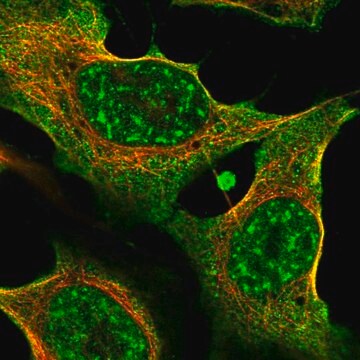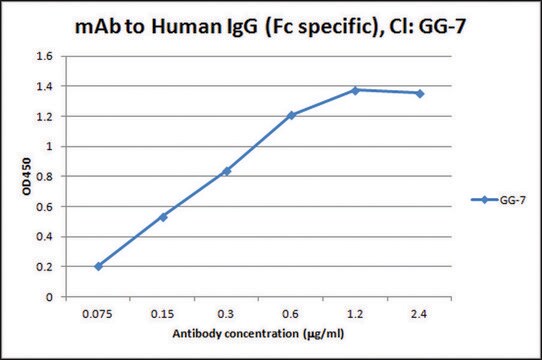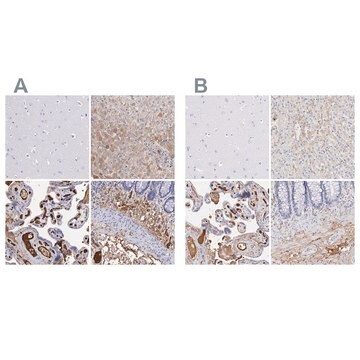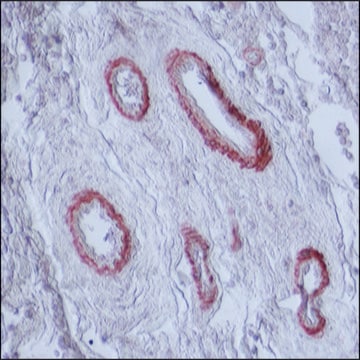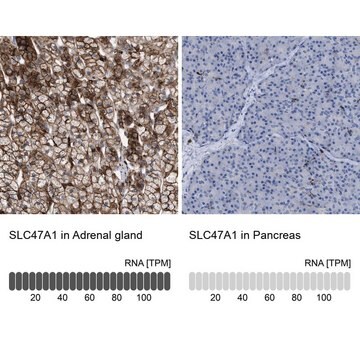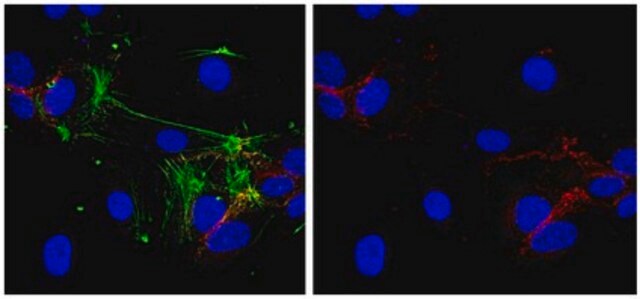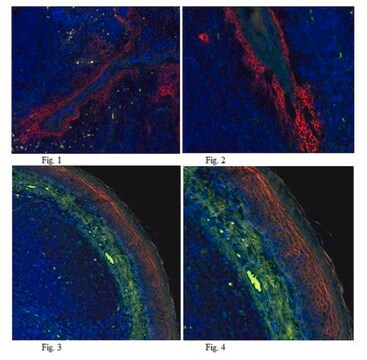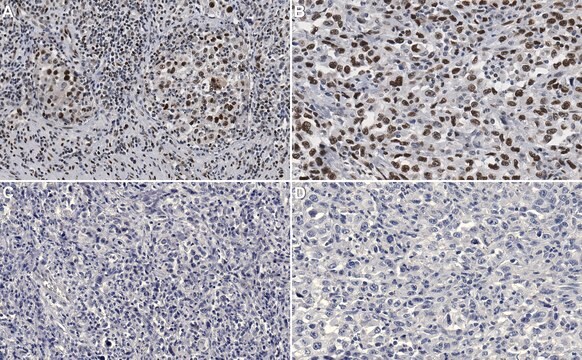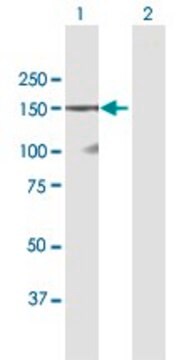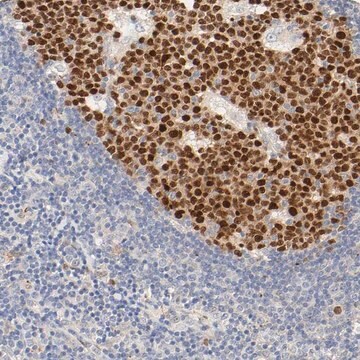Wichtige Dokumente
SAB4200466
Anti-Desmoglein 2 (DSG2) antibody, Mouse monoclonal
clone AH12.2, purified from hybridoma cell culture
Synonym(e):
Monoclonal Anti-ARVC10, Monoclonal Anti-ARVD10, Monoclonal Anti-CDHF5, Monoclonal Anti-CMD1BB, Monoclonal Anti-Desmoglein 2 (DSG2) antibody produced in mouse, Monoclonal Anti-HDGC, Monoclonal Anti-desmoglein 2
About This Item
Empfohlene Produkte
Biologische Quelle
mouse
Qualitätsniveau
Konjugat
unconjugated
Antikörperform
purified from hybridoma cell culture
Antikörper-Produkttyp
primary antibodies
Klon
AH12.2, monoclonal
Mol-Gew.
antigen ~150 kDa
Speziesreaktivität
human
Konzentration
~1.0 mg/mL
Methode(n)
indirect immunofluorescence: 2.5-5.0 μg/mL using HeLa cells
western blot: 0.5-1.0 μg/mL using HeLa total cell extracts
Isotyp
IgG1
Versandbedingung
dry ice
Lagertemp.
−20°C
Posttranslationale Modifikation Target
unmodified
Angaben zum Gen
human ... DSG2(1829)
Allgemeine Beschreibung
Immunogen
Anwendung
Biochem./physiol. Wirkung
Physikalische Form
Haftungsausschluss
Sie haben nicht das passende Produkt gefunden?
Probieren Sie unser Produkt-Auswahlhilfe. aus.
Lagerklassenschlüssel
10 - Combustible liquids
WGK
WGK 2
Flammpunkt (°F)
Not applicable
Flammpunkt (°C)
Not applicable
Hier finden Sie alle aktuellen Versionen:
Analysenzertifikate (COA)
Die passende Version wird nicht angezeigt?
Wenn Sie eine bestimmte Version benötigen, können Sie anhand der Lot- oder Chargennummer nach einem spezifischen Zertifikat suchen.
Besitzen Sie dieses Produkt bereits?
In der Dokumentenbibliothek finden Sie die Dokumentation zu den Produkten, die Sie kürzlich erworben haben.
Unser Team von Wissenschaftlern verfügt über Erfahrung in allen Forschungsbereichen einschließlich Life Science, Materialwissenschaften, chemischer Synthese, Chromatographie, Analytik und vielen mehr..
Setzen Sie sich mit dem technischen Dienst in Verbindung.